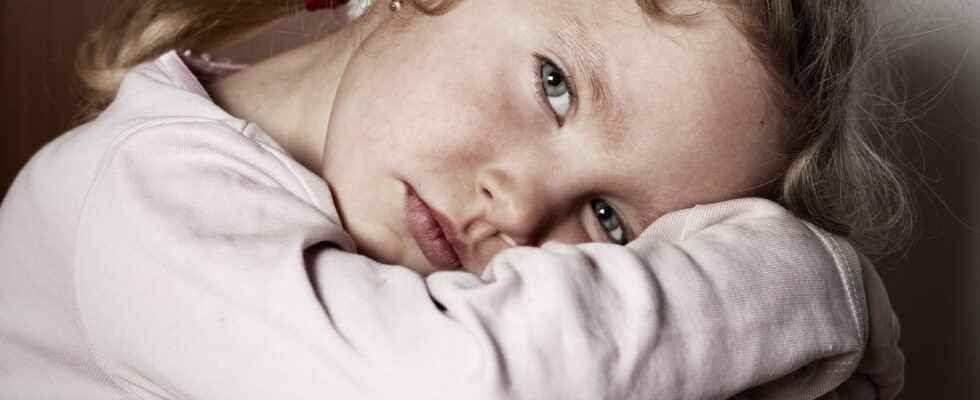The Incest Commission (Ciivise), which calls on health professionals to identify cases of abuse and incest, wants them to be better protected. Some, taken to court by the “aggressor” parents, are quickly discouraged.
Protect health professionals who report cases of incest
Last March, the Independent Commission on Incest and Child Sexual Abuse (Ciivise) delivered its recommendations on incest, after working for a year and collecting more than 11,000 testimonies. Among the conclusions: the screening of victims of abuse and incest, by teachers, doctors, lawyers, educators, social workers, child nurses, but also nurses and teachers. La Ciivise asks to urgently put the child in safety, when violence is detected, but also to‘accompany the people who give the alert by creating a national support unit for professionals confronted with situations of child victims of sexual violence. She offers to legally secure these people so that they cannot be attacked after a report.
Indeed, many doctors or health professionals find themselves discouraged when reporting a case of incest or child abuse. According to the Haute Autorité de Santé, doctors are only at the origin of 5% of reports. And for good reason : they often find themselves pursued by the abusive parents and are afraid of reprisals.
Eugénie Izard, a child psychiatrist, had a heavy experience of this: after reporting suspicions of abuse on an 8-year-old girl, she was suspended from her duties for three months. Same case for Dr. Françoise Fericelli, who followed a 6-year-old boy, “in great psychological pain”, victim of beatings, insults and repeated rapes. Her father, the aggressor, also convicted of domestic violence, lodged a complaint against the child psychiatrist, who was then sanctioned with a warning. “How can we protect children if we ourselves doctors are disavowed by our own professional order?” denounces Dr. Fericelli who is appealing this decision.
What are the recommendations of the Incest Commission?
Created in March 2021, the Ciivise has focused its reflections on the identification of victims, judicial treatment, reparation and the prevention of this violence. The testimonies collected show that the victims of incest are mostly women, that the average age of the victims is between 7 and 8 years old, that the facts are often revealed late and that the father is very often involved. Faced with this overwhelming observation, the Ciivise made a series of recommendations:
- Better identify victims, urgently put the child in safety, and support the people who give the alert, by adapting the law so that health professionals cannot be prosecuted after a report.
- Improving the judicial treatment of victims. La Ciivise recommends that reports relating to sexual violence be addressed directly to the public prosecutor and that hearings of children be carried out by a member of the police “specially trained and authorized”. She also calls for an improvement in the information of victims who must be able to know the progress of the legal proceedings and “the automatic suspension of parental authority and the rights of visit and accommodation of the parent prosecuted for rape or incestuous sexual assault against her child”
- Generalize care and compensate victims. The Ciivise also recommends reimbursing in full the costs of the medical adviser and repairing the damage in the form of a sum of money paid when the victim is a minor, with reassessment of the amount upon reaching majority, when an assessment can be made of the damages suffered. Finally, it asks that a specific intra-family prejudice be established in the event of incest.
Screening visits in primary and middle school, training, what measures at school?
On January 23, 2021, Emmanuel Macron announced new measures to better protect children against incest. He wants to set up an psychological support fully supported and two screening and prevention visits in primary and secondary school throughout France. This February 23, Jean-Michel Blanquer and Adrien Taquet had set up a work group composed of the two ministries, experts and associations working for the protection of children.
- Medical visits. Ensure dedicated time for detecting violence during screening medical visits,
- Training of professionals who work with children. Provide a specific module for the detection of sexual violence in the initial and continuing training of teachers and National Education staff.
- Associations. Support and facilitate the interventions of associations specializing in the detection and prevention of violence. “It is time to respond to the urgency of change but also to break with the denial and silence on which our society is partly built” said Adrien Taquet in a press release on January 23. The Secretary of State attached to the Minister for Solidarity and Health, responsible for children and families, wishes to set up “a device to support the speaking out of victims allowing orientation and support, in conjunction with the associations and structures concerned”.
- Sensitize students. Complete sexuality education with specific modules for raising student awareness and preventing sexual violence;
- Provide professionals clear resources.
The Ministry of National Education recalls that these measures reinforce the current prevention policy which provides for the awareness of students during sexuality education classesreporting and identification by school (in partnership with Enfance en danger and 119), as well as “education and sexuality” training. In addition, “a vademecum specific to domestic violence will soon be published to better recognize warning signs and support student victims” specifies the ministry.
Teachers and professors will therefore speak more directly or indirectly of incest at school, but how do you do it at home without frightening your child? Child protection associations recommendtalk about it as soon as possible.
books to understand
You can approach the subject through a book. The voice of the child recommends several such as Don’t let it go – Sexual abuse explained to childrenby Jocelyne Robert (Ed. L’Homme) from 4 years old or Lili was followed by Dominique de Saint Mars and Serge Bloch (Ed. Calligram) from the age of 6.
